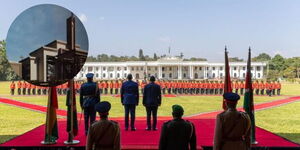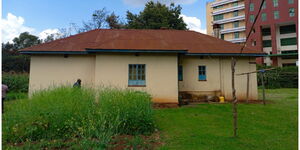Digital media house Hivisasa.com on Wednesday, January 29, announced the closing down of its news production unit after six years of operations, consequently sending its writers home.
The media house, which prides itself on having had a steady audience of two million monthly readers, cited failure to identify a viable advertisement-led business model, as the reason for the unprecedented closure.
Founder and CEO, Chloe Spoerry, stated that the decision had been arrived at to allow the company 'explore new ideas and opportunities'.
"We have made the hard decision to close down the current model of local news production, in order to explore new ideas and opportunities. A special thank you to our brilliant and dedicated team, and to our loyal readers," read a part of a press statement authored by the founder.
The online publication piloted its grassroots-focussed newsgathering model in 2012, with seed funding from 88mph and officially launched in January 2014. In June 2015, Luminate and Novastar Ventures invested in Hivisasa.com.
Experiment
Hivisasa.com (owned by Mobile Web Limited) set itself apart from mainstream news publishers by engaging the services of thousands of citizen journalists in the counties as opposed to hiring trained reporters - in an attempt to amplify the less-covered stories from the grassroots.
The company then hired trained journalists as editors to evaluate stories submitted by citizen journalists in the counties - among them student-journalists in media schools - and stationed them at a Nairobi office. The publication would offer a Ksh100 stipend to the contributors for each story submitted and found fit for publishing.
The quest would prove successful as the active pages grew from a few counties to 10 (Nakuru, Kiambu, Machakos, Kisii, Nyamira, Kisumu, Uasin Gishu, Garissa, Mombasa and Kibera (Nairobi)) in 2015 after which the expansion to other counties seems to have been abandoned.
Sources at the media house revealed to Kenyans.co.ke, that as far back as 2018, the citizen journalism model was beginning to crumble and the in-house editors were required to start sourcing and writing articles as contributions from the grassroots failed to attract the projected readership numbers.
While the actual number of contributors to the website has not been revealed, the founder's statement indicates that the affected could be in the hundreds if not thousands.
2019 Redundancies
In March 2019, the online publisher sent home 17 employees, cutting down its staff by half in an effort to reduce operational expenses.
“It is with deep regret and in no way a testament to the quality of your work or dedication, that we must inform you that your employment with Mobile Web will be terminated due to redundancy,” a statement by the company read.
It is not exactly clear what the fate of the in-house staff will be, but sources in the media house stated that the employees were given a one-month notice on Friday, January 24, and are expected to leave the company on Sunday, February 23.
Hivisasa's decision continues a worrying narrative of media layoffs due to dwindling revenues associated with a failing advertisement-driven model.
Media Roundtables
This is even compounded by the fact that digital publishing has been touted as the saviour of the media industry as key revenue sources such as the government reduced expenditure on advertising and the recent exit of major betting firms that were a huge source of advertising dollars.
Mainstream publishers including Daily Nation, The Standard and K24 have been significantly investing in their digital departments in a quest for more advertising revenue in the online space as more Kenyans opt to read their news on mobile powered by cheaper data bundles.
Monetisation of these efforts, if Hivisasa's exit is anything to go by, is one of the biggest headaches facing media executives.
In October 2019, Mediamax Network Limited fired 160 employees, a month after redundancy notices were issued in a decision that saw 24 Kameme TV staffers axed leaving the vernacular broadcaster with a lean team of 6 journalists. Significantly, no member of the media houses' digital division was affected by the layoff.
The media house laid off its highly salaried, all editors and senior news reporters in the exercise.
"As a company, we've tried everything, we looked at all the conditions including economic conditions and tried to minimize the effects of the proposed redundancy. We have followed all the due legal processes to ensure that the redundancy effect and the process is done in the best way possible.
"It's been a difficult one month for everyone and it doesn't go unnoticed," Ken Ngaruiya, the Company CEO stated.
Yet again, at the beginning of the year, Switch TV made major staffing changes in line with its growth strategy.
The first casualties of the changes were Chatspot hosts Nonny Gathoni and Jackie Matubia who were let go in early January.












